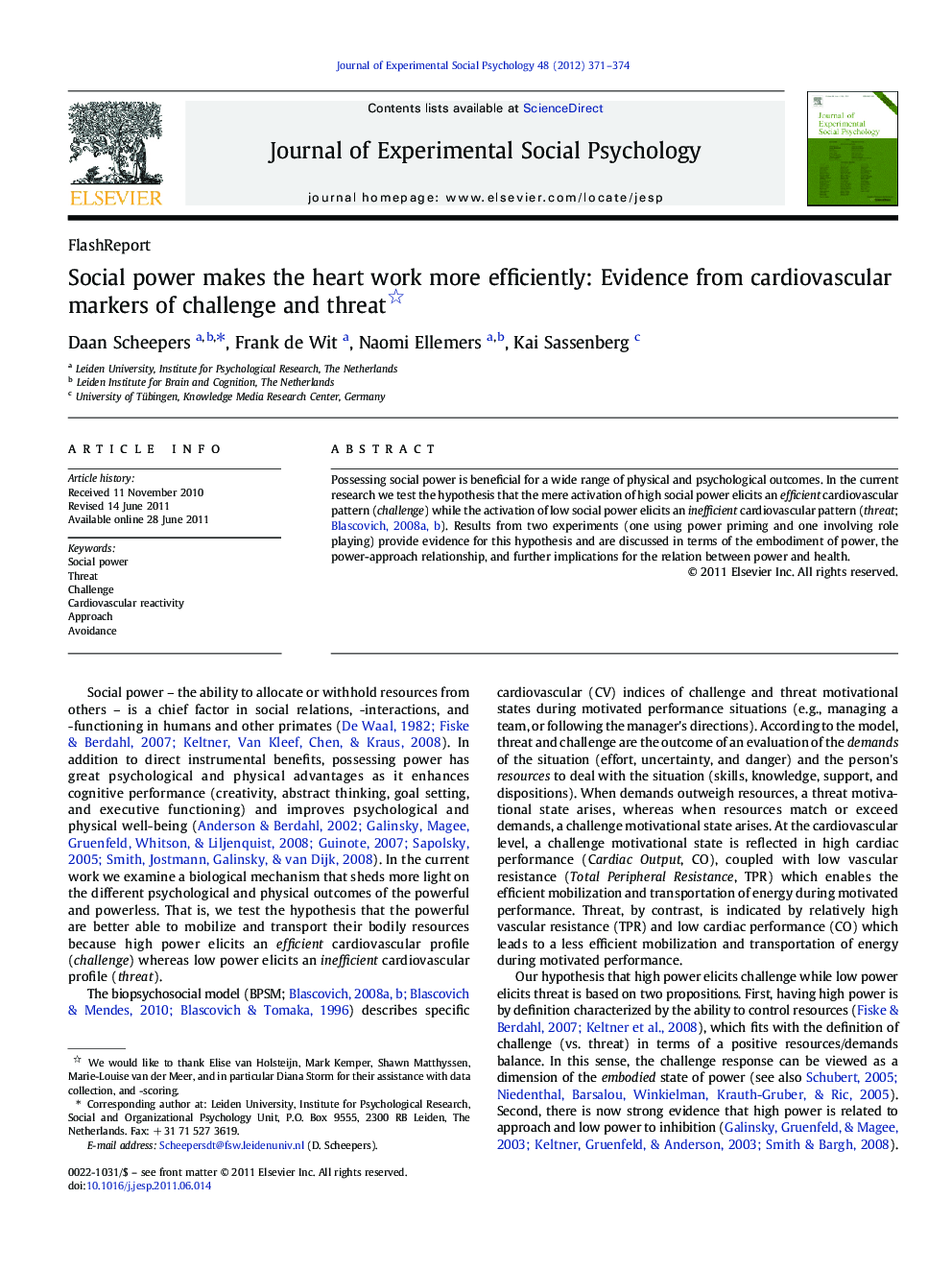| Article ID | Journal | Published Year | Pages | File Type |
|---|---|---|---|---|
| 948249 | Journal of Experimental Social Psychology | 2012 | 4 Pages |
Possessing social power is beneficial for a wide range of physical and psychological outcomes. In the current research we test the hypothesis that the mere activation of high social power elicits an efficient cardiovascular pattern (challenge) while the activation of low social power elicits an inefficient cardiovascular pattern (threat; Blascovich, 2008a and Blascovich, 2008b). Results from two experiments (one using power priming and one involving role playing) provide evidence for this hypothesis and are discussed in terms of the embodiment of power, the power-approach relationship, and further implications for the relation between power and health.
► We examine the relation between social power and cardiovascular (CV) indices of challenge and threat motivational states. ► We show that low power elicits a CV threat response and high power elicits a CV challenge response. ► We discuss the role of specific CV response patterns in the health outcomes of the powerful and powerless.
